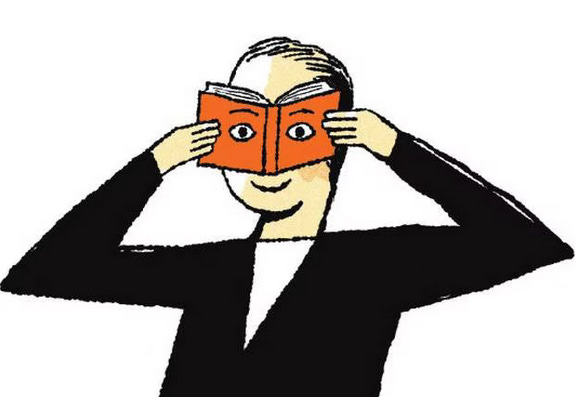Humility and Hubris: On the Internal Balancing Act of Writing a Novel
A Reflection in Six Parts
1.
Over the last several years I’ve noticed a trend: fewer fiction-track students in the MFA programs I teach for are turning in story collections as their thesis projects. Most are writing novels from the beginning of their tenure in the program, and few are turning in stand-alone stories for workshops.
Several students I worked with in the MFA program housed in Northwestern’s School of Professional Studies have gone on to publish revised versions of their excellent theses. Some were published by Big Five imprints, others by independent presses. Among those who readily come to mind are Ross Ritchell (The Knife), Patricia Crisafulli (The Secrets of Ohnita Harbor—the first volume of a trilogy—the second, The Secrets of Still Waters Chasm, was published last month), Ignatius Valentine Aloysius (Fishhead: Republic of Want), Tara Stringfellow (Memphis, which was a Today Show/Read with Jenna selection), and
(who writes the hugely enjoyable, erudite Dirtbags Through the Ageshere on Substack, and whose second novel/MFA thesis, Let the Dead Bury the Dead, is out on October 17).With a roll call like that, it’s easy to understand why many MFA students prefer to focus on the novel, but I’m always happy to see a story collection pass over the transom when serving as a thesis director or final reader. Big Five publishers and their sales and marketing departments, however, generally back novels with much more money and enthusiasm than they do story collections, although there are exceptions (George Saunders, Alice Munro—although Munro retired several years ago), and readers have duly made the novel the cash cow in the marketplace.
But I’ll save that topic for another time (I did write about this subject a while back for the Chicago Tribune).
2.
In the last few months, I’ve been thinking often about the peculiar, prolonged strain of writing a novel, in particular the push-pull between the forces governing hubris and humility. The earliest I can remember trying to write a novel was when I was twelve, after feverishly reading The Thorn Birds one summer while visiting relatives in Ohio. I’m not sure why I felt I had to write my own version of it, or why I thought I could.
I don’t know how many pages I wrote before the hubris of this undertaking began to make its impression. For one, the sheer number of hours required to sit still and painstakingly coax coherent narrative out of my unformed writer’s mind soon grew daunting. Not to mention the fact I did not possess the psychological acuity or the multifaceted intellect required to write an epic romance, whether it was set in New South Wales or in my staid hometown of Libertyville, Illinois.
School started and I set the notebook aside, eventually losing track of it. (Thank God!)
3.
Having since published three novels and written several others that haven’t been published, I wonder at times if I’m too tired, or, candidly, too dispirited, to finish the two novels I’ve been writing slowly over the last three and a half years in between teaching commitments and everything else the quotidian consists of.
If I had my way, if I knew I could earn something of a living at it, would I exclusively write short stories instead of writing novels I’m unlikely to sell, due to my midlist author status, to a Big Five press, i.e. a press that can pay more than a three- or four-figure advance?
What if I were told tomorrow that I would never publish another page of my fiction—would I keep writing it anyway?
4.
I have no idea. These kinds of questions give me a headache. What is the point of them other than to inflict psychological torture?
5.
This year I’ve started two new novels (meanwhile, my other two novels-in-progress sit in their brine, pale and mute), writing somewhere around 3,000 words in one case, 6,000 words in the other. One is a revenge thriller my friend Mark Caro (former Chicago Tribune reporter and author of several books including The Foie Gras Wars) encouraged me to start in order to flush out a ghost that’s been haunting my house—figuratively speaking. The other sprung from an idea that arrived after I read an interview with a woman who found her life post-divorce much happier than she’d expected.
I set both nascent manuscripts aside when I began looking at the pages I’d written with increasing self-doubt and fatigue, the question inevitably arriving, “Will I spend another year or two writing a novel that won’t sell?” I love indie presses and have worked with four, but I’m getting old and tired and will need money for my tombstone one day. (I’ve covered some of my experiences with indie presses more thoroughly in previous Bookish posts.)
6.
After abandoning these two new works-in-progress, I went back to one of the novels I’d begun in the winter of 2020. It has two point-of-view characters, and one of them, I could see, needed more character development and more emotional ballast. I wrote two new chapters and asked my partner to read them, worrying more than usual that he would find them boring and depthless. He is honest and very direct with his feedback, and almost always right when he says something isn’t working.
He liked the new chapters. I couldn’t believe it. Really? No…Really? You’re sure? I asked. Yes, he said. They’re good.
In the next day or so, after I read them again with less scorn, I realized that what I’d been missing was the right amount of hubris to keep me going.
It is of course a delicate balance—a writer needs humility in order to see when the work isn’t coming together in the way it must in order to draw readers into what John Gardner called the “vivid and continuous dream” of the story.
But we also need hubris to keep us at it, day after day, especially when we aren’t writing something that’s already been acquired by a publisher, which is probably many of us.
It’s late and I’m sending this off. Hope you have a good week of reading and writing, if that’s your vocation too (and maybe you’ll finish a new chapter and treat yourself to a doughnut).
Two recommendations:
’s graphic novel The Keeper and The Rose Metal Press Guide to Graphic Literature, which Kelcey co-edited with Tom Hart. (She also maintains the smart and beautifully drawn newsletter, The Habit of Art ).David’s Lists 2.0 - novelist and short fiction writer David Long’s excellent literary newsletter.
’s The Typewriter's Collage - Arnie is a nonfiction writer and Substacker extraordinaire.


This is spot on!
PS The novel I tried to write in 5th grade borrowed from three of my faves: Narnia, Boxcar Children (original), and My Side of the Mountain. I've long since lost the notebooks but I still remember some key themes. In some ways, my current novel comes back to these early obsessions.